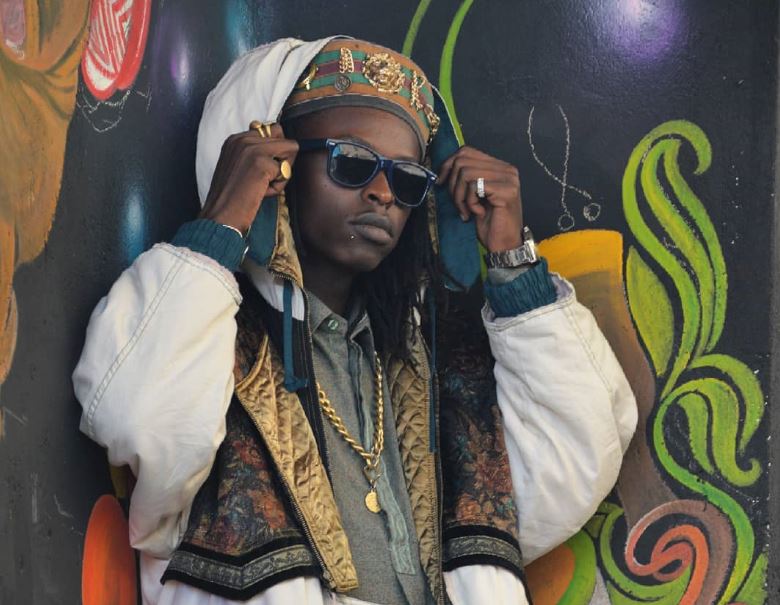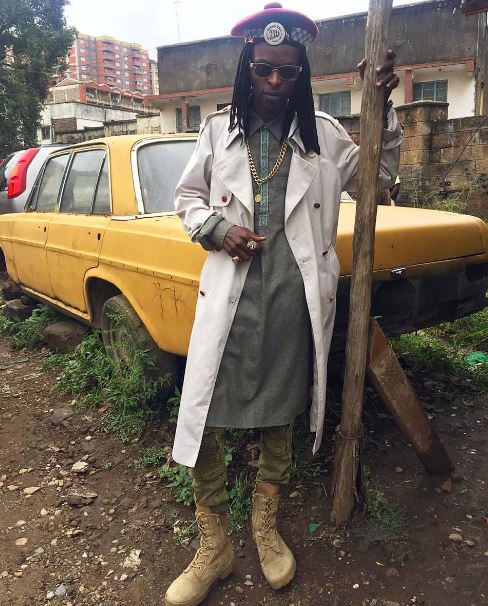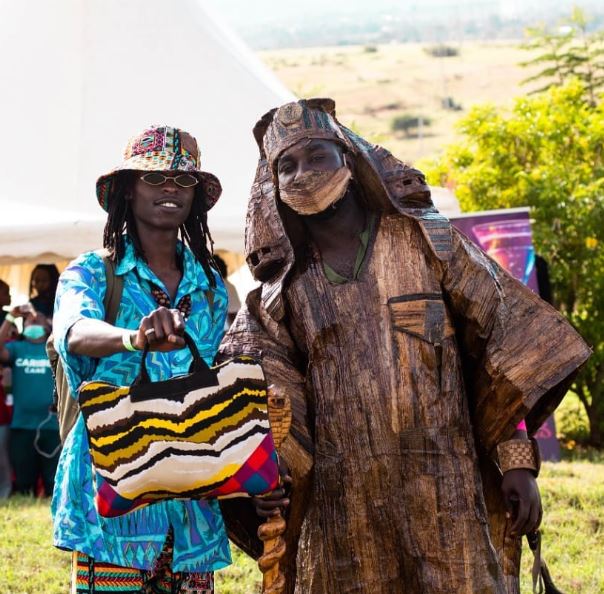 Charles Kariuki, better known by his stage name Chaleslim, is a jack of all trades; he is a rapper, actor, TV host, and a stylepreneur. He’s also the manager for Gengetone group Wakali Wao and a self-proclaimed Sheng amabassador.
Charles Kariuki, better known by his stage name Chaleslim, is a jack of all trades; he is a rapper, actor, TV host, and a stylepreneur. He’s also the manager for Gengetone group Wakali Wao and a self-proclaimed Sheng amabassador.
Chaleslim spoke to PeopleDaily about his artistic exploits
How has it been growing up in Mlango Kubwa area?
Growing up in Mlango Kubwa has taught me how to live with everyone.
It’s such a multicultural society and through these interactions, I’ve managed to pick up a lot about other cultures and I try to incorporate this in my art.
I grew up in a supportive community that embraces art as a way of life.
A fond memory I have from my hood has to be when I was given Sh15,000 for being the best actor for a random children’s script that my neighbour used to organise.
I was about 12 years then. We also grew up when organisations that support youth were vibrant such as the Mathare Youth Sports Association.
Through such entities, so many stars were born in different fields including footballers, musicians, and actors.
As a Sheng ambassador, what is the current status of the Sheng movement?
Sheng is at its best currently. We have seen the language transform from just lugha ya mtaa (street language) with negative connotations to a worldwide trend that everyone wants to be associated with.
There are more publications, websites, apps, and media content now done in Sheng.
This is a win in educating more people about Sheng. Just recently I met researchers from an international university who were in Kenya to study Sheng and its influence on music.
Your younger brother Swat is a member of gengetone group Ethic. Is this something any of you had foreseen?
Firstly, I’d like to commend the spirit of the new wave of Kenyan artistes in general.
They are simply working with what they have and causing waves while at it.
We definitely knew the youngins were up to something, but to be honest we didn’t know that it would be this huge.
I’ve mentored my brother through sharing my experiences in the music industry, which I have been doing professionally for more than seven years now.
Do you collaborate with your brother in any way?
I actually started rapping with him at home, but it’s funny that we don’t have a collaboration project yet.
But plans are underway for a couple of them. I get to style him for shoots and he keeps me in touch with the ever-changing underground scene. The only instance we rival is when we choose beats to rap on.
Some people share an opinion that you are one of the most underrated rappers in Kenya. Do you feel so too?
I believe that every type of music has its audience. The music that artistes like myself do has mostly been labelled conscious, political, or activist.
So, not most of the jams will be played in clubs or your popular TV or radio stations.
Some people will get the message immediately, some will get it later and some will never get it. I can live with that.
As Skeme Music duo, you’ve worked with international acts such as Jojo Abot from Ghana and Karun. What works are you most proud of to date and why?
Working with all these artistes who have a different scope of music has opened me up to a lot of things.
How to brand myself, selling the music, and the general artiste etiquette.
I am most proud of Mr Polisi, our first music video, particularly because of the impact it had and the topic it was addressing— the gun violence in Kenya.
The soundtrack has been used widely by different human rights organisations, and was also used as a case study at the British Institute of East Africa.
What do you hope to see in the Kenyan music industry?
My vision is for the industry to reach a point where the revenue collection channels are streamlined and music can be an acceptable, worthy and paying career choice.
I’d love to see the dissemination of crucial information to all Kenyan artistes, and Kenyan content in general rival with the world in terms of quality and acceptability.








